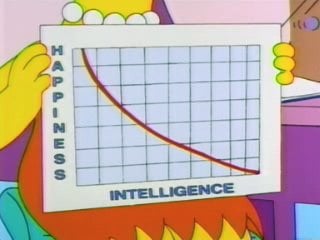I've accepted that a Late Application is at a disadvantage in receiving an interview and eventual acceptance. I want to understand better why.
I can think of a few reasons mentioned on SDN and elsewhere:
1. "Late applicants are fighting for fewer interview spots."
Reply: Yes, that's true, but there have also been a number of rejections, and a late applicant is in the running against many others who have already been passed over once. Let's say Mary Apple is among 10,000 applicants to a class of 100 spots, and 500 interviews. If you were to "grade out" those 10,000 applicants, Mary is among the top 350-400 applicants. Let's say Mary's application just starts getting reviewed when 80% of the interview spots have already been filled. Presumably, about 80% (or more) of the applicants have already been looked at once. If Mary really is a good applicant, why would she be denied an interview among the remaining 20% of interview spots left? In context, it looks like her "chances" never really changed.
2. "Late applicants have demonstrated poor judgement and time management by applying late."
Reply: This is possibly true, but there are a number of factors that go into having an application completed by June 1--many of which are under the control of the applicant, and many of which are not. I would guess that very few intend to submit late apps, and being lazy or a poor manager of time and resources is not a driving factor in submitting late. If this is the perception, I'd be interested to know whether there are data to support this claim: ie, do late applicants who are then accepted do worse on boards and residency match than early applicants? There is likely bias there (only the best late applicants get admitted), but has there been a study to assess this?
3. "Schools willfully choose to interview 'less qualified' early applicants over 'more qualified' late applicants."
Reply: I don't know if this is true. I'd be interested to hear adcom members' experiences and what their feelings are. It's not very flattering to admit that a school would choose less qualified people because they were impatient in selecting the best candidates to compose a class. Why extend a deadline out so late if the well-qualified late-applicants won't even be given real consideration?
I don't want this thread to become a place of ad hominem attacks or arguments against late applicants (or me the poster ). I'm just seeking clarity on how late applicants are disadvantaged and why.
). I'm just seeking clarity on how late applicants are disadvantaged and why.
I can think of a few reasons mentioned on SDN and elsewhere:
1. "Late applicants are fighting for fewer interview spots."
Reply: Yes, that's true, but there have also been a number of rejections, and a late applicant is in the running against many others who have already been passed over once. Let's say Mary Apple is among 10,000 applicants to a class of 100 spots, and 500 interviews. If you were to "grade out" those 10,000 applicants, Mary is among the top 350-400 applicants. Let's say Mary's application just starts getting reviewed when 80% of the interview spots have already been filled. Presumably, about 80% (or more) of the applicants have already been looked at once. If Mary really is a good applicant, why would she be denied an interview among the remaining 20% of interview spots left? In context, it looks like her "chances" never really changed.
2. "Late applicants have demonstrated poor judgement and time management by applying late."
Reply: This is possibly true, but there are a number of factors that go into having an application completed by June 1--many of which are under the control of the applicant, and many of which are not. I would guess that very few intend to submit late apps, and being lazy or a poor manager of time and resources is not a driving factor in submitting late. If this is the perception, I'd be interested to know whether there are data to support this claim: ie, do late applicants who are then accepted do worse on boards and residency match than early applicants? There is likely bias there (only the best late applicants get admitted), but has there been a study to assess this?
3. "Schools willfully choose to interview 'less qualified' early applicants over 'more qualified' late applicants."
Reply: I don't know if this is true. I'd be interested to hear adcom members' experiences and what their feelings are. It's not very flattering to admit that a school would choose less qualified people because they were impatient in selecting the best candidates to compose a class. Why extend a deadline out so late if the well-qualified late-applicants won't even be given real consideration?
I don't want this thread to become a place of ad hominem attacks or arguments against late applicants (or me the poster



